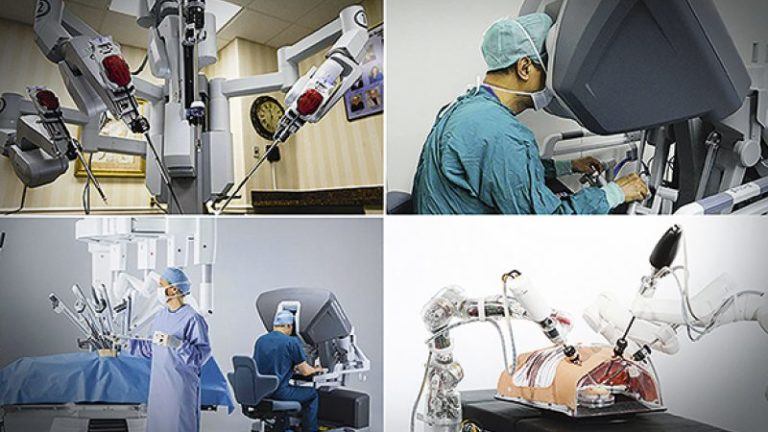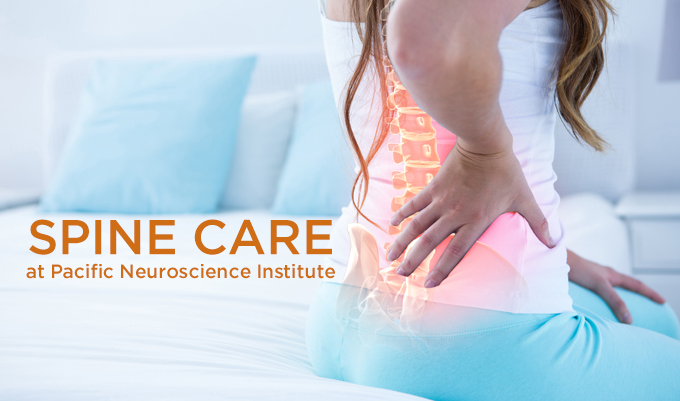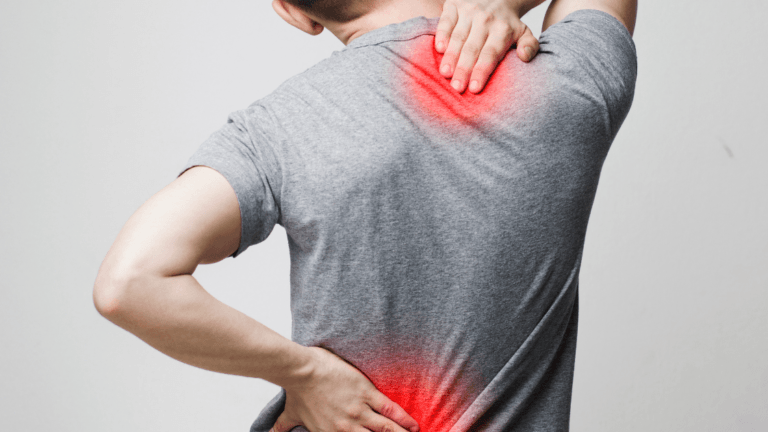
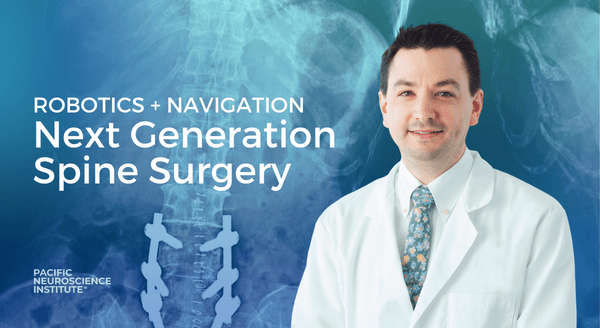
Revolutionary Robotic Spine Surgery at PNI-South Bay
by Zara Jethani
Dr. Jean-Philippe Langevin performed the first robotic + navigation-assisted spine surgery at Providence Little Company of Mary on Friday, March 22, 2024.
On a crisp, early morning in Torrance, California, anticipation and quiet excitement buzzed in the air as everything was meticulously prepared in the operating room. With all clinical personnel standing by, Pacific Neuroscience Institute® neurosurgeon, Jean-Philippe Langevin, MD, took a moment to meet with and reassure both the patient and their family. Then, as the stage was set, it was time for the procedure to begin.
A Breakthrough Moment

“I believe that this is a breakthrough robot + navigation technology for spine surgery. I also believe that it will improve spine care as more functionalities are added over time,” reports Dr. Langevin after the successful spine surgery. “I completed the training and I was able to perform my first case very smoothly.”
The Globus Excelsius advanced robotics + navigation platform was recently purchased by the hospital. It combines a rigid robotic arm and full navigation capabilities for accurate screw placement and trajectory alignment during spine surgery. The state-of-the-art technology that it incorporates is designed to enhance safety and improve efficiency for patients, staff, and surgeons in the operating room.
Director of the Pacific Spine Care Center at PNI-South Bay and Director of Restorative Neurosurgery at the Movement Disorders Center at PNI, Dr. Langevin expertise extends from surgical treatment of spine issues to using neuromodulation (deep brain stimulation, DBS) to treat conditions such as Parkinson’s disease, essential tremor, dystonia, epilepsy and obsessive-compulsive disorder.
The Benefits of Robot + Navigation Spine Surgery

Based on his experience, Dr. Langevin says, there are four aspects where the robot improves the surgical care of patients with conditions of the spine. He lists the following:
- Improved accuracy
The robot is integrated with a software that allows the surgeon to plan the surgery ahead of time using the pre-operative imaging. The surgical team can determine the position and the trajectory of the screw implants. This plan gets imported into the robot at the beginning of the surgery and it serves as a roadmap for the case. It is a little bit like importing your destination in a car GPS: it allows the surgeon to free their mind from some of the steps and focus on the flow of the surgery.
- Personalized surgical care
In addition to the trajectory, the software also allows the surgeon to plan the dimensions (length, width, and height) of the implants to be used. Since the spine anatomy is different for everyone, implants come in many different sizes. By planning the size ahead of time, the software allows the surgeon to optimize the selection of each implant in making sure to get the best fit. That selection is relayed to the manufacturer to confirm that the necessary implants are available at the time of the surgery. - Reduction of forces applied to the tissue
The robot uses a series of powered tools as opposed to manually operated instruments. As a results, less forces are applied to the spine which may allow for improved healing of the tissue around the implant. - Reduction in x-ray exposure
Given the ongoing self-check of accuracy of the robot, there is less reliance on x-rays to confirm the proper position of implants while they are being positioned. This means that the patient is exposed to less radiation during the case.
To learn more, schedule a consultation with the Spine Health Clinic: 424-212-5361
About Dr. Jean-Philippe Langevin
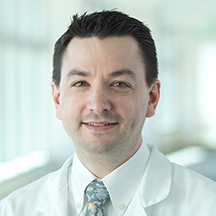
Jean-Philippe Langevin, MD, is a board-certified and fellowship-trained neurosurgeon specializing in the surgical treatment of movement disorders, epilepsy and psychiatric conditions. He employs a variety of treatment modalities including deep brain stimulation, vagal nerve stimulation and interstitial laser ablation. As the Director of Neuro-Spine Surgery at the Spine Institute at Little Company of Mary, he sees patients with a wide array of spine disorders. With a multi-disciplinary team, he treats back issues caused by tumors, back pain, or other trauma.
Clinic Location
PNI – South Bay
5215 Torrance Blvd, #300
Torrance, CA 90503
424-212-5361
Articles Related to Spine Health
Videos Related to Spine Health
 Spine Care at PNI – Randy’s Story
Experience Randy’s miraculous recovery from a spine injury
Spine Care at PNI – Randy’s Story
Experience Randy’s miraculous recovery from a spine injury
 Dr. Walavan Sivakumar (Pacific Spine Health)
Dr. Walavan Sivakumar (Pacific Spine Health)
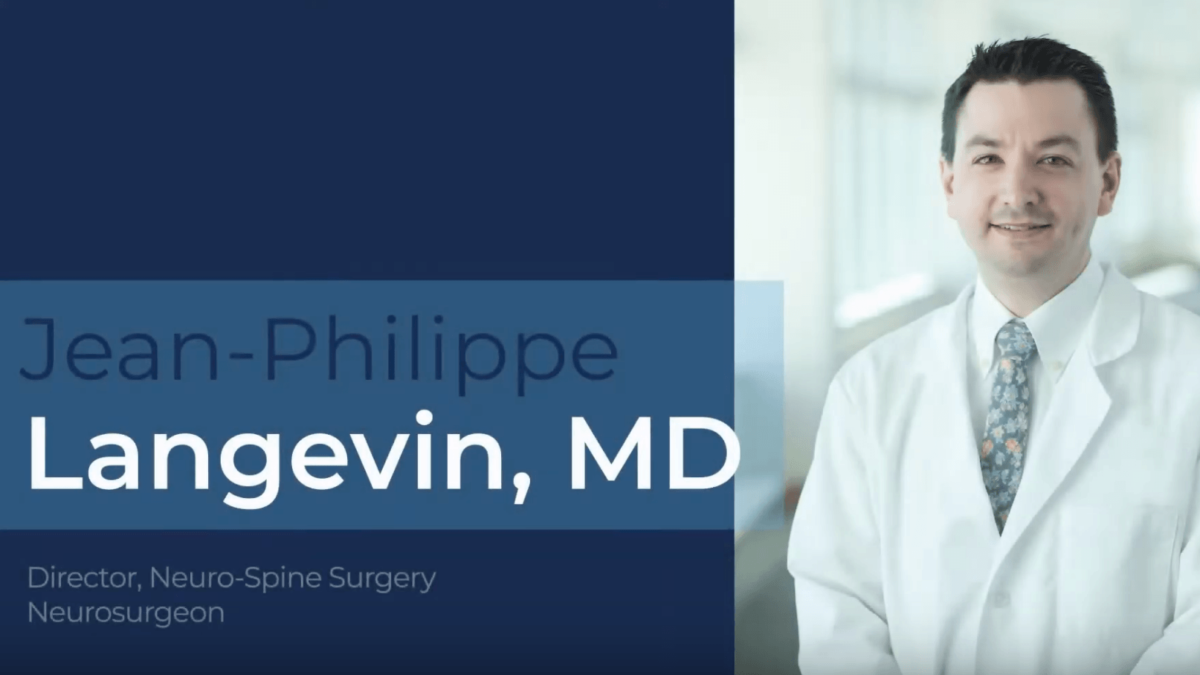 Meet Dr. Jean-Philippe Langevin
Jean-Philippe Langevin, MD, is a board-certified and fellowship-trained neurosurgeon with special interest in the surgical treatment of complex spine conditions and movement disorders. Selected as a multiple year recipient of…
Meet Dr. Jean-Philippe Langevin
Jean-Philippe Langevin, MD, is a board-certified and fellowship-trained neurosurgeon with special interest in the surgical treatment of complex spine conditions and movement disorders. Selected as a multiple year recipient of…
 Meet Dr. Guan
Dr. Jian Guan is a fellowship trained neurosurgeon with a special focus on complex spine surgery at Pacific Neuroscience Institute. Dedicated to the care of patients with spine and neck…
Meet Dr. Guan
Dr. Jian Guan is a fellowship trained neurosurgeon with a special focus on complex spine surgery at Pacific Neuroscience Institute. Dedicated to the care of patients with spine and neck…

Randy’s Spine Care Story

Meet Dr Walavan Sivakumar (Pacific Spine Health)
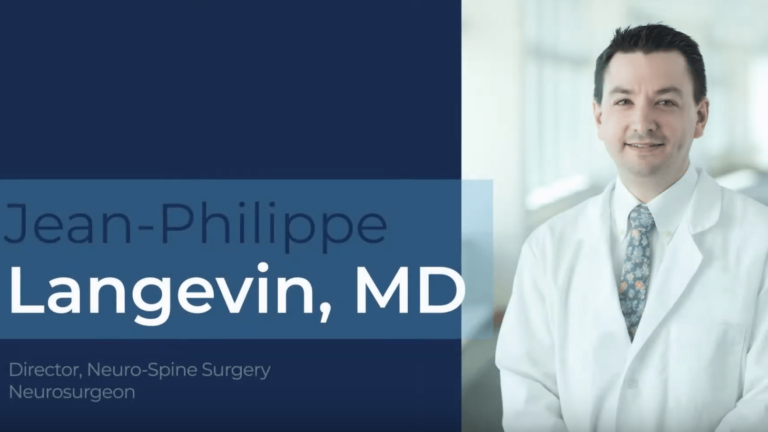
Meet Dr. Jean-Philippe Langevin

Meet Dr. Jian Guan
About the Author

Zara Jethani
Zara is the marketing director at Pacific Neuroscience Institute. Her background is in molecular genetics research and healthcare marketing. In addition, she is a graphic designer with more than 20 years experience in the healthcare, education and entertainment industries.
Last updated: July 2nd, 2024
